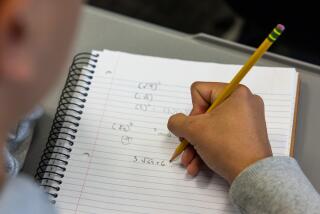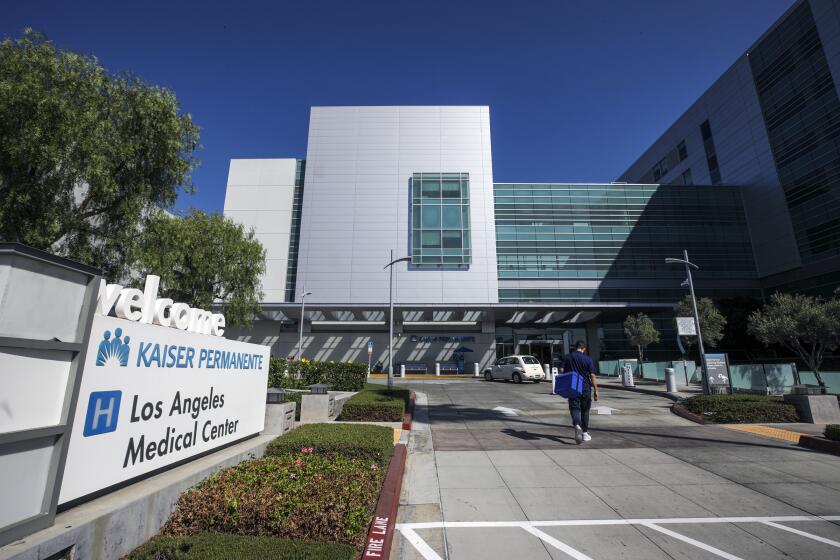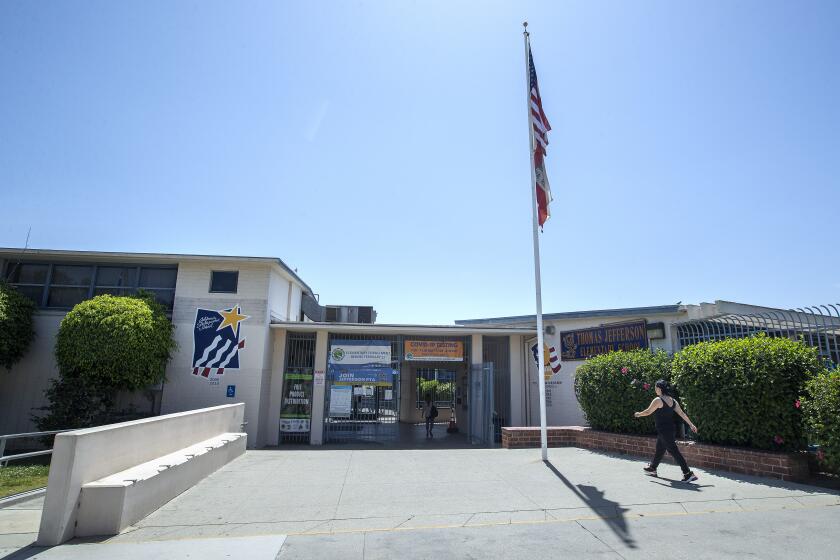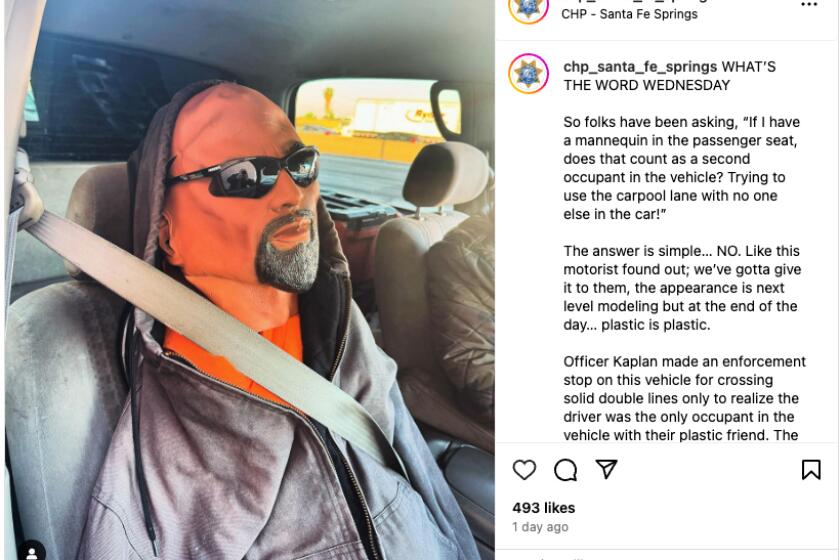Science, math and art valued more than technology in education poll
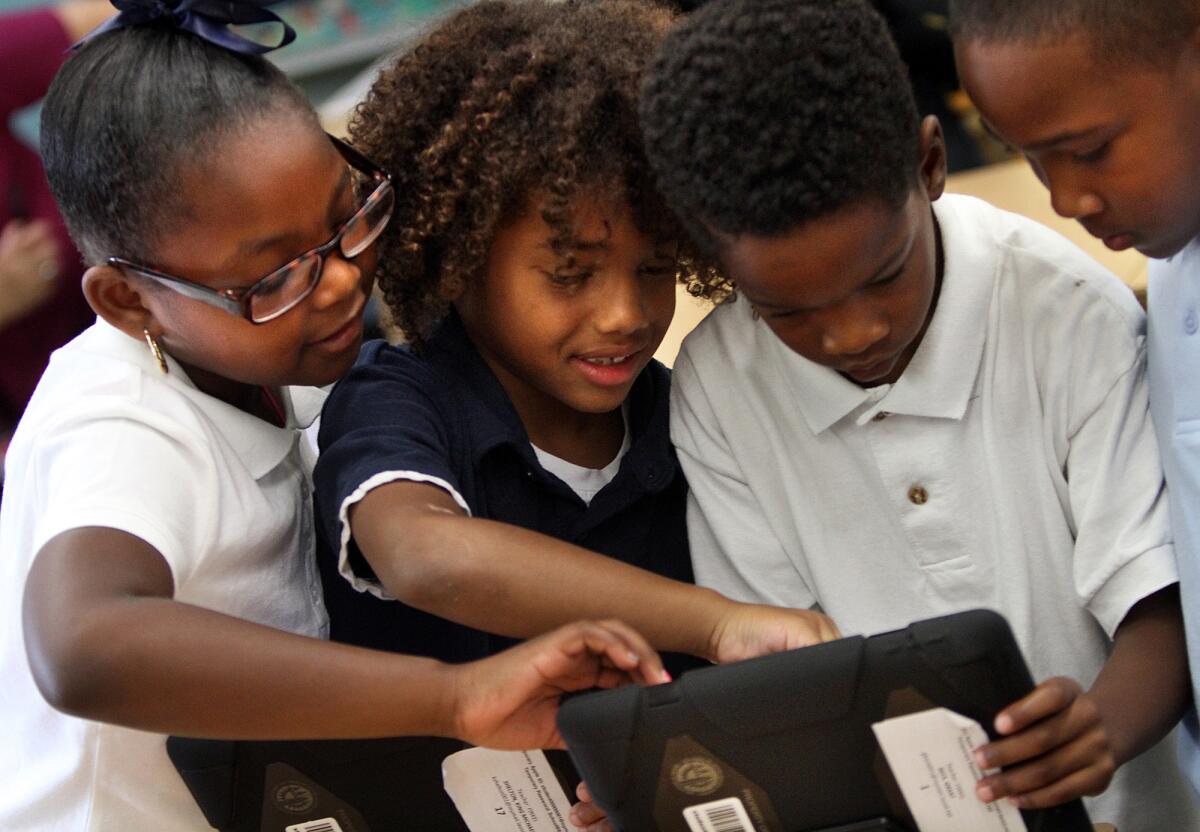
Computers, like the one used at this elementary school in Carson, are great, but not the top priority, according to a poll of California voters.
Providing computers to public school students is important to California voters, but not as crucial as other factors affecting education, including a more intense focus on math, science and the arts, according to a new poll.
In the USC Dornsife/Los Angeles Times survey, voters were given a list of options and asked to select the top two that would have the most positive impact on improving public education in California.
Nearly half, 49%, picked “increasing funding for math, science and technology instruction,” according to the poll.
Nearly a third said funding should be increased for subjects like art and music education.
About one in four voters said that most important was raising salaries for teachers and improving books and materials for students.
The fifth most popular choice, at 20%, was providing technology, such as tablets and laptops, to students.
Many school districts around the country have made technology a priority, including by supplying a tablet or laptop to every student. Such an effort collapsed in the Los Angeles Unified School District because of high costs, missteps and eroding political support. This year also marked the first time that California and other states conducted standardized tests on computers, which has forced school systems to update and expand technology.
Pollsters said the results could indicate an increased awareness about the importance of math- and science-related fields, often referred to as STEM, which stands for science, technology, engineering and math.
This belief by voters could quickly affect public policy on education, said Drew Lieberman of Greenberg Quinlan Rosner Research, the Democratic contributor to the bipartisan polling effort.
“It makes you wonder if we’re on the verge of a bigger investment in STEM-centric high schools,” Lieberman said.
The findings also could indicate a back-to-basics emphasis among voters, said Dave Kanevsky of American Viewpoint, the Republican polling partner.
“This also goes back to the three ‘Rs,’” said Kanevsky.
Incorporating the arts was especially important to white, college-educated women, although the arts also had broad appeal. Pollsters said the results suggest that as families climb the economic ladder, they place greater importance on the enrichment that art and music can provide.
“I’m for STEM all the way,” said Arianna Rivera, 23, an East Los Angeles resident who graduated from a high school with a math and science focus. But she added: “Arts and music, that needs to come back as a No. 1 priority. And then supplies and then electronics. Some students don’t have enough money for pencil and paper, and that should be provided.”
She paused and then put another factor higher than technology: “A program can’t give a student what a teacher can, that personal connection.”
Voters who participated in the survey did not regard technology as irrelevant. They were open to a broad range of strategies that could help students, analysts said.
“If I had my druthers I would have gone with technology as much as possible because it’s the wave of the future, but it’s cost prohibitive,” said poll participant Henry Yoshikawa, who headed a tiny school district in Placer County before he retired to Sacramento. For his students, he managed to provide a computer lab in half of a triple-wide trailer, but not at the expense of traditional materials like books.
“That was basically all I could do,” he said.
Harriet Barajas, from Vallejo, said all students should have access to technology as needed, but districts should not provide a computer to every student, especially those who already own them.
“If they need a computer, that’s fine,” said the 60-year-old gas station manager. “But if you give every kid a tablet, that’s money spent that could be used somewhere else that’s useful.”
The poll by the USC Dornsife College of Letters, Arts and Sciences and the Los Angeles Times surveyed 1,504 California registered voters by telephone from March 28 through April 7. The margin of error is 2.7% percentage points in either direction and higher for subgroups.
Twitter: @howardblume
More to Read
Start your day right
Sign up for Essential California for news, features and recommendations from the L.A. Times and beyond in your inbox six days a week.
You may occasionally receive promotional content from the Los Angeles Times.


